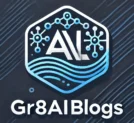“`html
The AI Controversy: Navigating the Intersection of Authors and Artificial Intelligence in NaNoWriMo
Every November, writers around the world participate in National Novel Writing Month (NaNoWriMo), a creative challenge that encourages authors to produce a 50,000-word manuscript in just 30 days. However, this year, the introduction of AI tools has stirred a significant debate among the writing community. As technology evolves, the challenge of integrating AI into the writing process raises questions about authorship and creativity.
The Rise of AI in Creative Writing
AI tools have rapidly transformed various sectors, including literature. Authors can now leverage artificial intelligence to generate ideas, assist in editing, or even produce complete drafts. Some argue that this assists the creative process, while others see it as a threat to traditional authorship.
Here are some key ways AI is being integrated into the writing process:
- Idea Generation: AI can provide prompts or concepts, helping authors overcome writer’s block.
- Editing Assistance: Tools powered by AI can suggest grammatical improvements, enhancing the quality of manuscripts.
- Full Draft Generation: With advances in machine learning, some AI systems can write entire stories based on minimal input.
The Controversy Over Authorship
As the line between human creativity and artificial intelligence blurs, many writers find themselves grappling with the implications. Is using AI merely a tool to enhance creativity, or does it compromise the essence of authorship? These discussions gained momentum during NaNoWriMo, as many participants questioned the ethical considerations of AI-assisted writing.
The Support for AI as a Creative Tool
Proponents of AI in literature argue that:
- AI can democratize writing by providing resources to those who may not have traditional writing skills.
- It allows authors to focus on big-picture storytelling instead of getting bogged down in the minutiae of editing.
- AI can bring fresh perspectives to narratives using vast datasets that inform its output.
The Concerns Regarding AI and Creativity
On the flip side, critics remain wary of AI’s influence on writing. They express concerns such as:
- The Loss of Authentic Voice: Writers fear that reliance on AI-generated content compromises individual style and creativity.
- Ethical Quandaries: Who owns the intellectual property of an AI-generated text, and how is copyright enforced?
- Job Displacement: Many worry that widespread AI use could lead to diminished opportunities for writers, editors, and literary agents.
Real Experiences from the Writing Community
This year’s NaNoWriMo has been marked by intense discussions and diverse experiences among participants regarding AI. Some authors share compelling stories of how they incorporated AI into their writing processes:
- Curiosity-Prompted Usage: Many writers experimented with AI tools out of curiosity, finding them useful for generating ideas or exploring new genres.
- Resistance to Change: A significant portion of the writing community has opted to keep AI at arm’s length, believing in the purity of traditional writing methods.
- Collaborative Efforts: Some authors are beginning to view AI as a co-writer rather than a competitor, blending human and machine creativity.
The Future of Writing: A Collaborative Rather Than Competitive Landscape?
As the NaNoWriMo community continues to grapple with these questions, a forward-looking perspective highlights the potential for collaboration between human authors and AI technologies. The future of writing may not necessarily be a battle between tradition and innovation, but rather a melding of both.
To foster an environment of collaboration, writers and tech developers can work together to create tools that enhance rather than replace human input. By combining the reliability of AI’s processing power with the innate human capacity for storytelling, writers may uncover new possibilities beyond the limits of tradition.
Navigating the Transition
For writers participating in NaNoWriMo and beyond, navigating the transition toward incorporating AI becomes an exercise in balance. Some key strategies may include:
- Start Small: Experiment with AI tools on a limited basis to see how they can assist your writing without overshadowing your voice.
- Utilize AI for Specific Tasks: Use AI to aid in research or brainstorming, leaving the storytelling to your creative instincts.
- Engage in Community Discussions: Share experiences with fellow writers, whether supportive or critical of AI, to better understand its impact on the community.
Conclusion: The Journey Ahead
The unfolding debate surrounding AI’s influence on authorship during NaNoWriMo reflects a larger conversation within the literary world. As writers explore creative pathways alongside technology, it remains crucial to emphasize the value of human creativity and traditional authorship while also embracing the possibilities that AI can offer.
For an immersive experience, consider retreating with fellow writers at Kensington Guest Suites, where you can engage in collaborative writing, share your thoughts on AI, and refine your craft in a serene, supportive environment.
As we venture into a new era of writing, may the synergy of human and artificial creativity lead to groundbreaking narratives and transformative storytelling experiences.
“`
This blog post offers a comprehensive perspective on the current issues surrounding NaNoWriMo and AI’s influence on creativity, while also incorporating necessary SEO elements for optimal visibility and engagement.

